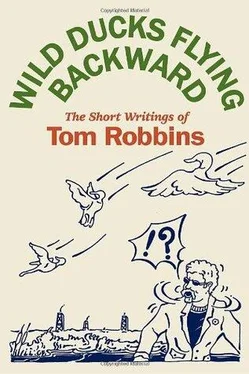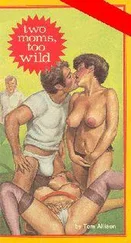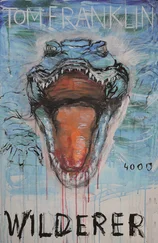Foreword to The Archaic Revival, HarperCollins, 1992
NOTE:When Terence McKenna was killed by a brain tumor in 2000 (a cruel irony considering the astonishing range and vibrancy of his cerebral equipment), his obituary in The New York Times reported that he had gone around predicting the “end of the world.” This is patently false. What Terence talked about so convincingly and optimistically was a potential end of history, of our temporal paradigm — the end of a world system being a far different thing than the end of the world. It goes to show you that America’s “newspaper of record” cannot always be trusted to get its facts straight, particularly when dealing with subjects that bloom outside the gray-walled garden of cultural orthodoxy.
Although I’m hypnotized by the colored lights he plays upon the dark waters of history — by the way he illuminates a shadowy ocean of conspiracies, atrocities, buffooneries, and arcana, causing it to sparkle in every direction — what I ultimately find thrilling and inspiring about Thomas Pynchon is an ostensibly far simpler thing. It’s his choice of nouns.
His verbs, adverbs, and adjectives are engaging as well, but Pynchon is most impressive when he reaches into a vast bin of squirming language and somehow plucks out a noun that is fresh and unexpected, yet totally appropriate. For example, in Mason & Dixon he has the Reverend Cherrycoke (a splendid appellation!) wipe his bum with “a fistful of clover.” A lesser writer might have settled for “grass” or “leaves” or “straw,” none of which could have lit up the scene the way that clover does. It’s small choices such as that one, choices to which, except subliminally, the general reader is oblivious, that tote the freight of genius.
Mark Twain opined that the difference between the perfect word and one that is merely adequate is the difference between lightning and a lightning bug. Well, move over, Zeus! Take to the storm cellar, ye firefly farmers! Thomas Pynchon has got both hands on the thunderbolt machine.
Bookforum, 2005
She’s walked a tightrope between fire and honey, between sulphur and roses, between sarcasm and succor, between monolith and disco ball, between hairshirt and hula skirt, between daunting daughter and doting mom, between the girl next door (gone a little bit wild) and international diva (with democratic sentiments). And now after marriage, maternity, and a relatively long hiatus from Hollywood, she’s walking an unfamiliar line between fame and obscurity. She’s walking down the creaky hallway of public memory.
Few who’ve ever heard it forget her voice — which sounds as if it’s been strained through Bacall and Bogey’s honeymoon sheets and then hosed down with plum brandy. Or her laugh — which sounds as if it’s being squeezed out of a kangaroo bladder by a musical aborigine. Men remember her astride that mechanical bull in Urban Cowboy and fantasize about exchanging places with it. Women recall her salt-raw vulnerability in Terms of Endearment and issue wet sighs of identification.
Acquaintances and paparazzi, upon mention of her name, reminisce about her boyish Huck Finn swagger, her chain-saw intensity, her Algonquin-caliber wit. What the curious chroniclers of celebrityhood focus on, however, are the figure sixty-nines she’s allegedly skated on pond after pond of life’s thin ice.
Starting at about sixteen, when she joined the Israeli army, then deserted to go on the bum in Paris, the Cleveland-born Valley girl sowed a fairly huge hopper of wild oats, it’s true, though whether she was rowdier than her peers or just more imaginative is debatable; and though she isn’t exactly sitting home these evenings knitting prayer shawls, it’s been a long time since she’s waltzed with the devil on a broken rail or rooted for jewels in the Andean snow. Nevertheless, it’s hard to move out of one’s pigeonhole, whether or not one ever signed a lease, and now as her film career resumes, the media’s memories of her days as a saucy little troublemaker (don’t those who insist on excellence always make trouble for those who’re all too willing to settle for mediocrity?) obscure a more comprehensive picture of a woman whose complexities are as immense as her talents.
As for my personal recollections…
The first time I met Debra Winger, we spontaneously ducked out of a boring Tinseltown business meeting to take refuge in a dimly lit Santa Monica dive, where we caused the bartender to develop repetitive-motion disorder from the incessant refilling of our tequila glasses. Late in the day, as I recall, we borrowed a razor blade from the barkeep’s kit, slit our thumbs, and exchanged blood by the light of the jukebox, bonding as siblings of a sort while we danced (illegally) to blues records and puffed Havana cigars. Memories are made of this.
Now, nine years later, and a mile or two southeast, we’re sitting in a health hutch called I Love Juicy, sipping carrot froth and spinach squeezings like a couple of toothless old rabbits on a chlorophyll binge, and the only things bleeding are the beets in the blender.
While it’s no secret that rehabilitation, recovery, and self-denial are the hallmarks of the American 90’s, I’d like to believe that we’ve neither succumbed to trendy asceticism nor been born again as pea-pod puritans. I prefer to think we’re cavorting with Bugs Bunny instead of José Cuervo because we’re temporarily functioning somewhat below the summit of our physiological potential.
For more than six months, I’ve been blitzed by a mysterious virus that I took aboard on a pilgrimage to Timbuktu, while Winger is beset by environmental asthma she developed on a shoot in the dustlands of West Texas.
Thus afflicted, we hold celery stalks like pretend cigars while staring uneasily at the tape recorder that sits on the table next to our cabbage coolers. David Hirshey, brilliant editor and unwavering Winger fan ( he’ll never forget) has persuaded me to interview his dream girl for Esquire, to grill her about her recent return to the screen.
We’re no more accustomed to relating in this formal way than we are to the lettucey libations of I Love Juicy, but we profess to be troupers, so, after much hesitation, I stub out my celery in an ashtray and switch on the machine.
“It’s not fair,” I begin. “How could a wise and loving God load up this vegetable juice with thousands of vitamins and not put a single one in tequila?”
Rising, as usual, to the occasion, Winger flashes me that ol’ hellcat grin and says, “Oh, you can get nourishment from tequila, Tommy. But you have to eat the worm.”
Esquire, 1993
I went to Satan’s house.
His mailbox was painted black.
A fleet of bonecrushers was parked in his driveway.
The thorns on his rosebushes were longer than shivs.
And sixty-six roosters scratched in his front yard, their spurs smoldering like cheap cigars.
I went to Satan’s house.
It was supposed to be an Amway party.
I wanted one of those hard as hell steak knives.
The ones that can’t tell the difference between mama’s sponge cake and a chunk of rock cocaine.
I went to Satan’s house.
I felt a little out of place.
But Satan’s twin daughters soon put me at ease.
They tried on funny hats for me, showed me jewels, danced around my chair.
They read my fortune in a bowl of ashes, let me pet their Dobermans, and watch while they rinsed out their pink underthings.
Читать дальше












